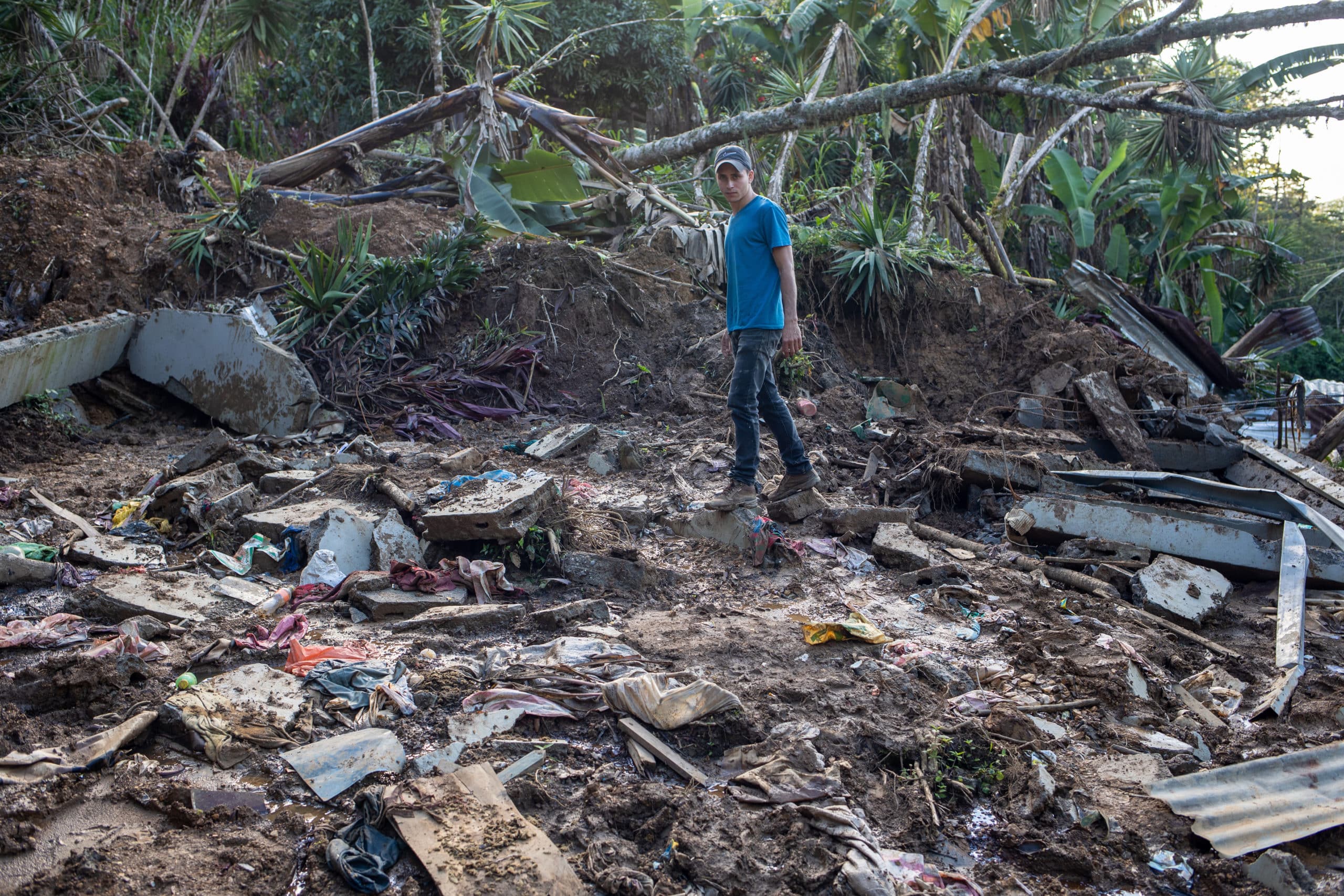
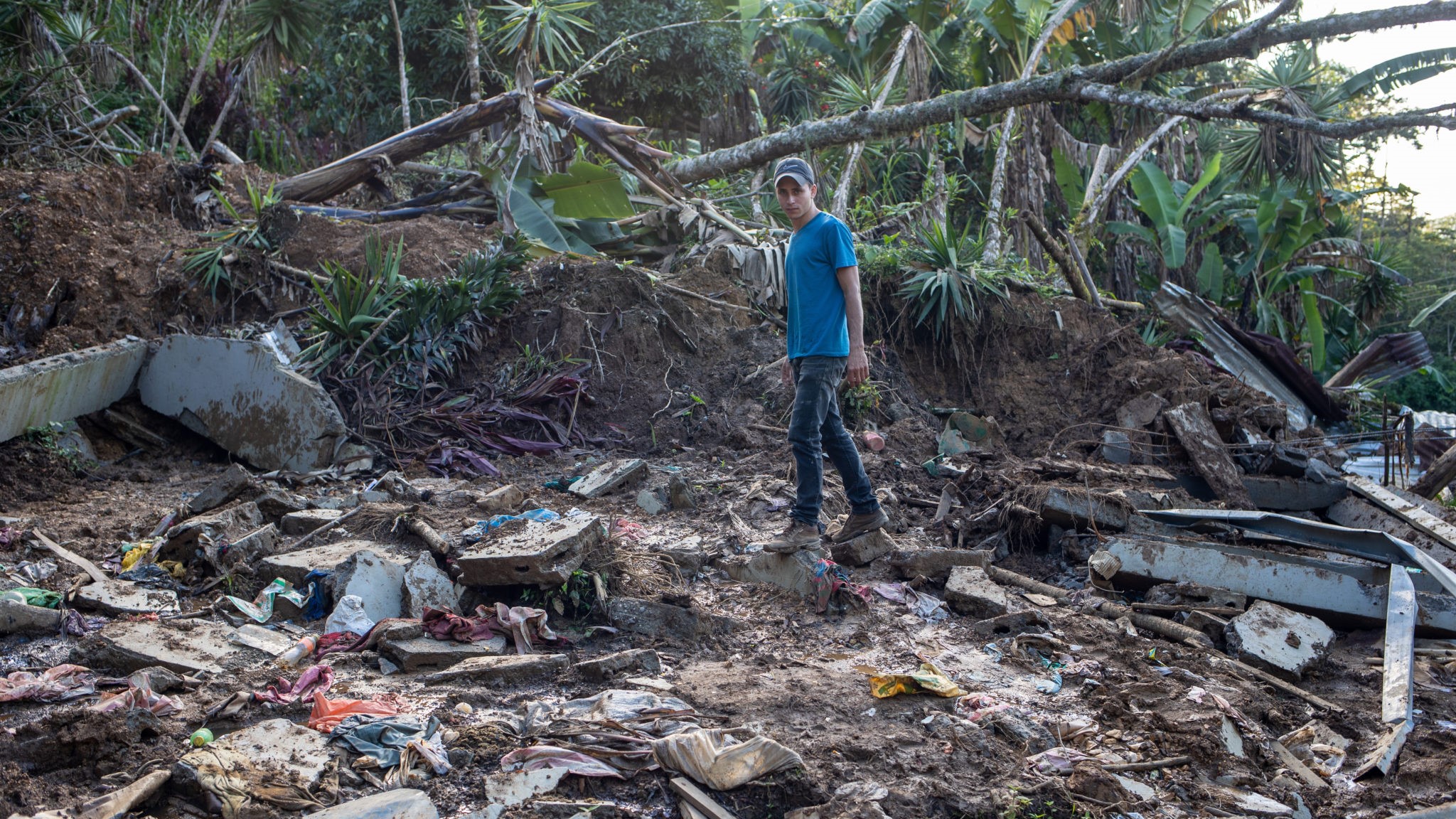 Rosendo Pineda, an employee of the Montaña Verde coffee cooperative, surveys the damage shortly after Hurricane Iota.
Rosendo Pineda, an employee of the Montaña Verde coffee cooperative, surveys the damage shortly after Hurricane Iota.
Last November, the farmers of San Luis Planes were preparing for their annual harvest when Hurricane Eta wracked the Honduran countryside. The community, already reeling from the impacts of the COVID-19 pandemic, had less than two weeks to recover before the even larger Hurricane Iota hit.
Shortly after the storms, one local farmer, Mario Roberto Fernandez, surveyed the damage. “From the two hurricanes, on top of the pandemic, we’ve seen damages to housing, roads, and farms… the loss of houses.” High winds knocked ripening coffee cherries from their trees, threatening the primary income of farming families.
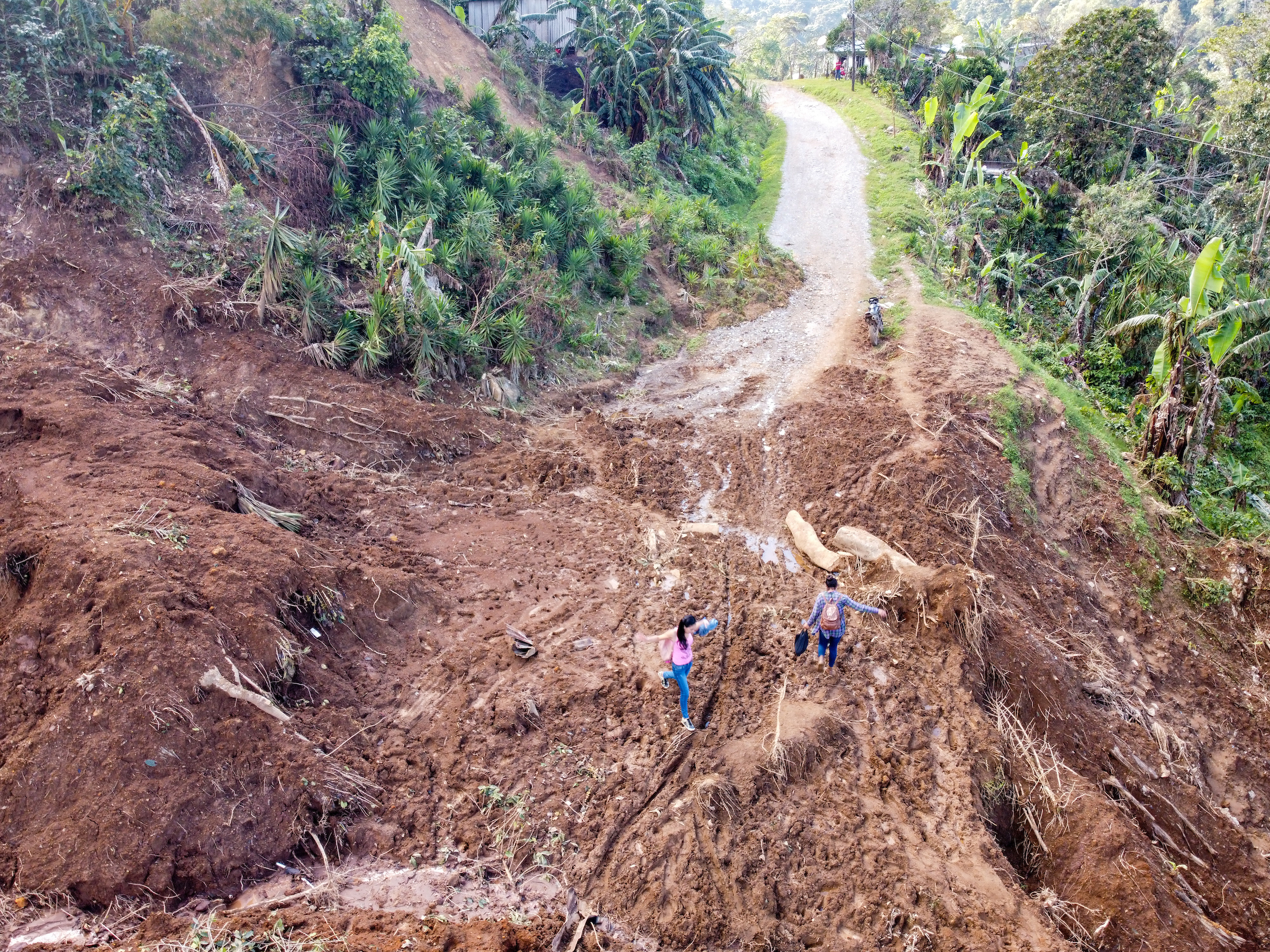 Women clamber over a road washed out by a landslide in San Luis Planes after Hurricane Iota.
Women clamber over a road washed out by a landslide in San Luis Planes after Hurricane Iota.
These storms were the latest-and most extreme-example of the climate threats that farmers in San Luis Planes face, but these catastrophes aren’t an isolated incident. “Climate change is affecting us in different ways,” Mario explains. “The rains come when we don’t expect them, then don’t come when we do.” On top of this, farmers in the area are confronted with increasing rates of crop disease caused by rising temperatures and unpredictable climatic conditions. All of this results in greater uncertainty for rural communities already living on a knife’s edge.
But Mario has an ally as he tackles the worsening impacts of climate change. He’s a member of the Montaña Verde coffee cooperative, a farmer-led business with a mission to improve local livelihoods. Over the past decade, Root Capital has partnered with Montaña Verde to strengthen their business and community. Now, as the climate crisis worsens, we’re poised to build their resilience into the future.
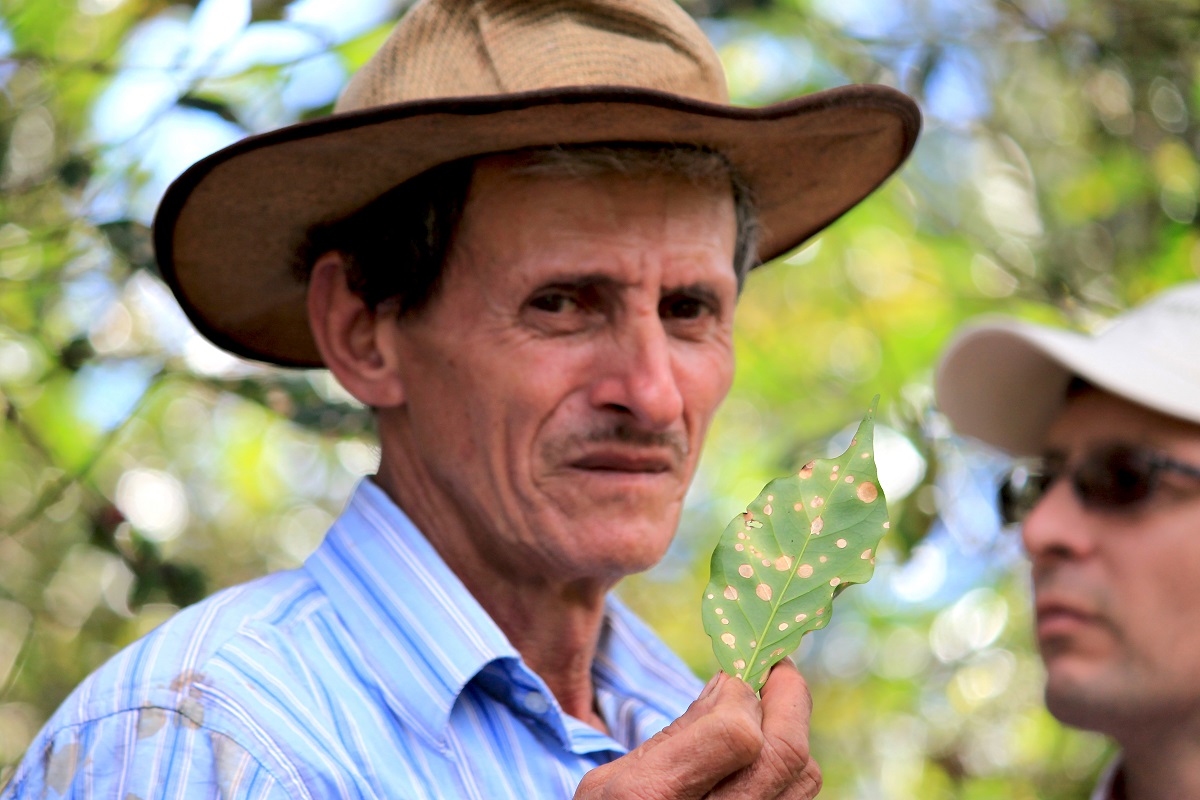 Nicolas Piñeda, a farmer-member of Montaña Verde, holds up a diseased leaf during the 2013 coffee leaf rust crisis.
Nicolas Piñeda, a farmer-member of Montaña Verde, holds up a diseased leaf during the 2013 coffee leaf rust crisis.
Climate Change: A Growing Concern
Since our first loan to Montaña Verde in 2011, Root Capital has provided the business with $11.5 million in cumulative financing. We’ve accompanied that credit with capacity building on accounting, financial analysis, digital business intelligence, and agronomic training to ensure the cooperative can grow sustainably.
In 2013, San Luis Planes, like much of the rest of Central America, was hit by coffee leaf rust-a disease that killed coffee plants and depressed farmers’ yields and income. This disease was exacerbated by climate change as warmer, wetter weather provided fertile breeding ground for the fungus. Working with partners like Keurig Green Mountain (now Keurig Dr Pepper) we launched the Coffee Farmer Resilience Initiative (CFRI) to help businesses like Montaña Verde respond to this threat.
We provided the cooperative with tailored financial training to help leaders manage their business during a crisis, with advice on topics like contingency planning, risk management, and how to work with buyers. We continued ongoing work on internal credit systems to ensure that farmers could obtain short-term loans to weather the epidemic without risking the organization’s long-term financial health. And we worked with the Montaña Verde agronomic extension team to help farmers renovate their damaged farms and replant hardier, more disease-resistant varieties of coffee.
With support, Montaña Verde didn’t just survive this climate crisis, they thrived. Between 2012 and 2018, the cooperative more than doubled their sales and helped farmer-members like Mario recover from the crop disease while preparing for the challenges of the future. Now, as the impacts of climate change are felt with increasing frequency, we’re innovating new tools to meet this threat in partnership with Montaña Verde.
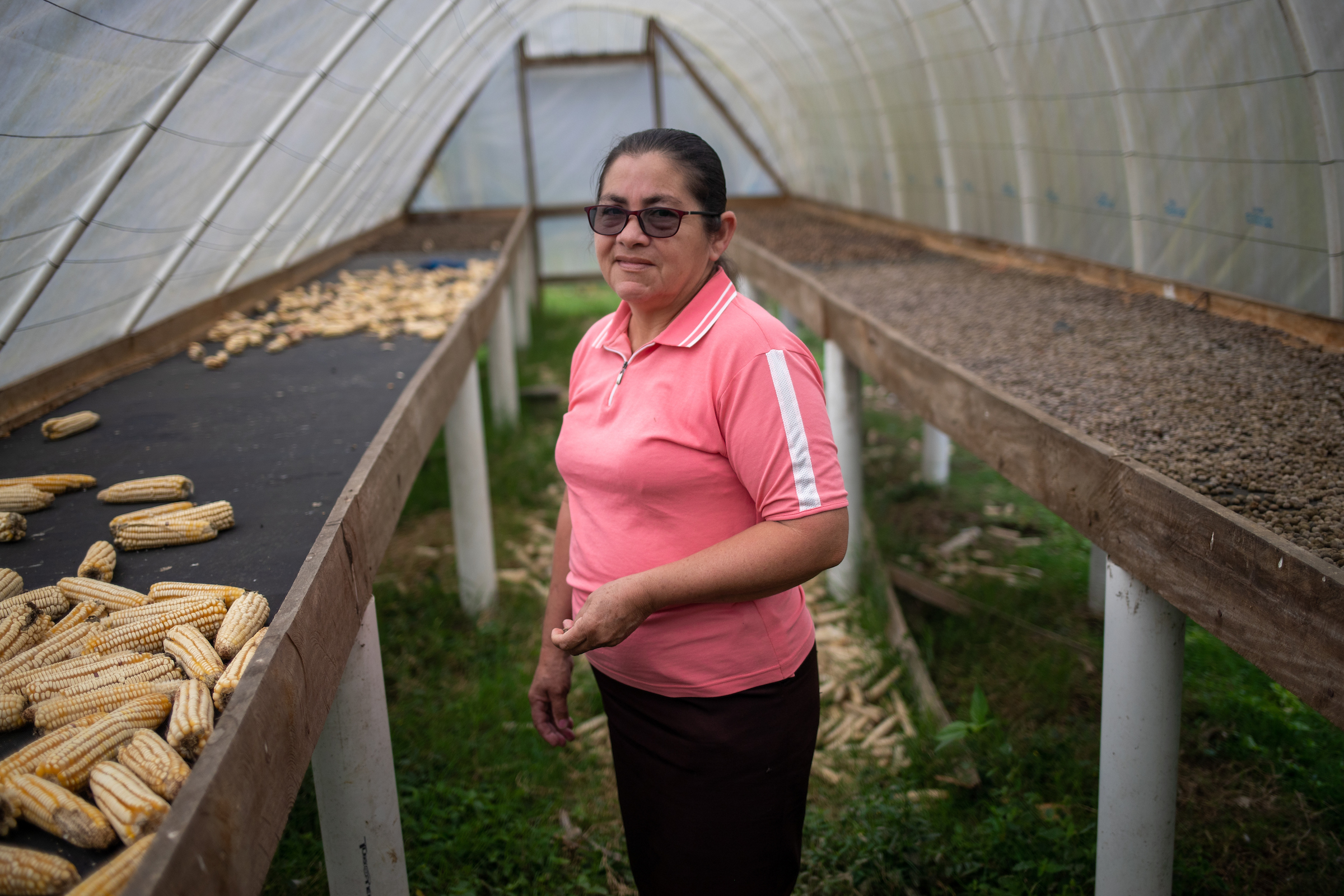
Confronting Modern Problems with Modern Solutions
For farmers living in the mountainous region of San Luis Planes, a few hundred feet of elevation can be the difference between a flood ripping through your farm or remaining relatively unscathed. To address these uneven impacts-and make the most use of their resources-Montaña Verde is participating in our climate vulnerability assessment pilot.
With the philanthropic support of the Walmart Foundation, we’re helping the business combine their proprietary, farm-level data with historical, meteorological information and industry-leading climate mapping from the International Center for Tropical Agriculture (CIAT). This helps the cooperative visualize climate change’s impacts and identify the farmers most at risk. We’re also working with Montaña Verde’s agronomic extension team to execute and monitor tailored adaptation plans that direct resources and training to the farmers who need it most.
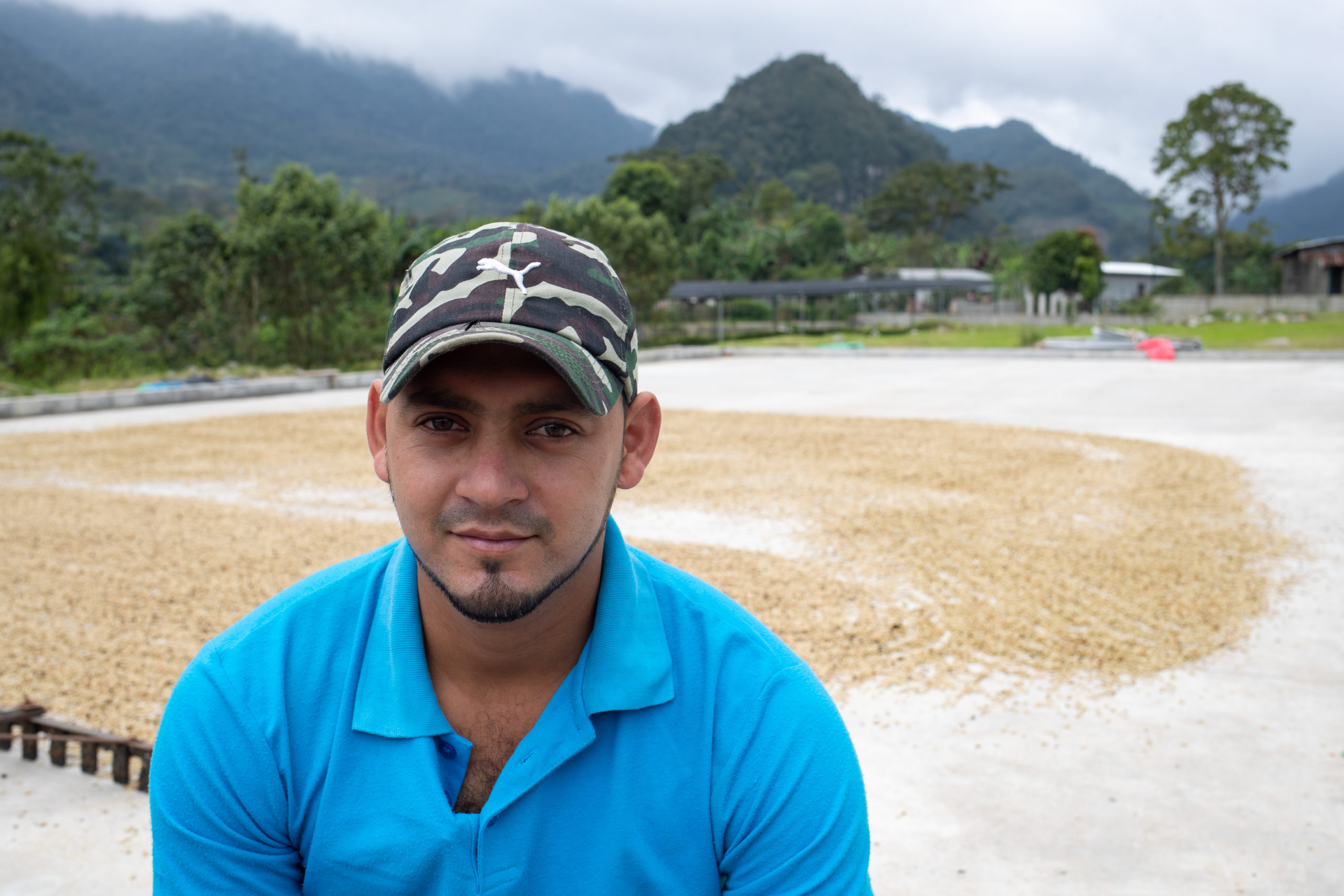 Mario Roberto Fernández, coffee farmer with Montaña Verde photographed shortly after Hurricane Iota.
Mario Roberto Fernández, coffee farmer with Montaña Verde photographed shortly after Hurricane Iota.
As Mario and his neighbors recover from November’s hurricanes-and the impacts of COVID-19 persist-Montaña Verde is preparing for the shocks of tomorrow. While businesses can’t predict the future, when we build the resilience of an enterprise and its farmers, we can help them prepare for whatever comes next.
Photos © Sean Hawkey and Root Capital
